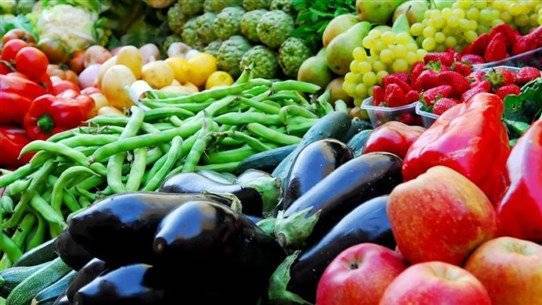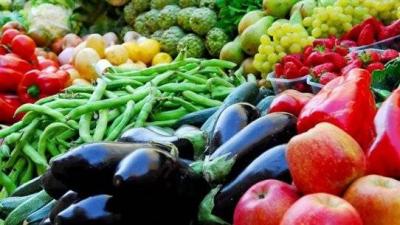The reasons for the rise in fruit and vegetable prices in the markets can be numerous and justifiable, but the primary reason remains the greed and avarice of traders. This can be observed in the price variations between different shops and between wholesale and retail prices. "It's all the dollar's fault" is the constant excuse traders use to justify the price increases, as if it were a record they repeat without hesitation or thought every time we inquire about the reasons behind the rising prices in the markets. But who will protect the Lebanese citizen?
A report conducted by the World Bank on the impact of the COVID-19 pandemic regarding "the inflation of food prices in the Middle East and North Africa" indicated a rise in the prices included in the food basket in Lebanon between February 14, 2020, and February 3, 2022. The World Bank calculated the change in food prices across 18 countries in the region through five main categories of food: starches, dairy products, meats, fruits, and vegetables. It noted that the price of potatoes in Lebanon increased by 60.2% during the covered period, which is the highest increase in the price of this food product among all countries in the region.
### Inflation and Price Disparities
Amidst the decline in individuals' purchasing power, price inflation, and inability to secure sufficient food, the country should leverage its natural resources to provide adequate food for all segments. If the Lebanese citizen forsakes meat and cheeses that have become exorbitantly priced, they should substitute them with less costly items such as vegetables and fruits. However, the problem lies in their inability to access these alternatives. A quick tour of some shops reveals the soaring and differing prices of fruits and vegetables, for example: one kilogram of tomatoes sells for 30,000 LBP, cucumbers at 24,500 LBP, eggplant at 17,500 LBP, green bell peppers at 17,000 LBP, potatoes at 20,000 LBP, and zucchini at 23,500 LBP.
In a conversation with the president of the Lebanese Farmers Association, Antoine Hawi, a comparison was made between the wholesale and retail prices of fruits and vegetables. The results showed: the wholesale price for one kilogram of tomatoes is between 12,000 and 14,000 LBP, cucumbers between 16,000 and 18,000 LBP, eggplant between 8,000 and 10,000 LBP, green bell peppers at 11,000 LBP, potatoes at 16,000 LBP, and zucchini at 13,000 LBP. In this case, the farmer does not benefit while the consumer is the victim, due to traders' greed. "The prices of fruits and vegetables are acceptable compared to what they were before," says Hawi, "and we are concerned with wholesale prices, not retail prices. Supermarkets or shops in Beirut should not be the primary reference."
### The Causes
"Alongside the greed and avarice of traders who run rampant at the expense of the Lebanese citizen due to the absence of oversight from the relevant authorities, there is another reason leading to price inflation," says Economic and Social Council member Imran Fakhri. This reason is "the widening gap between the citizens' needs for food security on one side and the available quantities on the other side. This situation leads to an increase in the quantities imported from abroad, which are purchased in cash dollars, as the Lebanese farmer is marginalized and unable to secure the necessary amounts for citizens’ needs due to the lack of required infrastructure like electricity and water, high prices of agricultural supplies, and the absence of any support that enables them to continue. Lebanon currently produces about 20% of agricultural commodities and imports 80% from abroad to fill this gap."
### The Costs Remain High and Dollarized
"We can say today that the farmer has adapted to the price situation and accepted the idea of dollarizing the expenses and costs of agriculture," says Hawi, "but this situation creates an unstable condition in the agricultural sector. Before the crisis, the cost of securing land in the Beqaa region was 100 dollars. Today, it is estimated at 400 dollars, alongside the accompanying agricultural supplies, fuels, transport costs, irrigation, and labor costs. Had the Lebanese state cared about its citizens' interests, it would have agreed to provide the necessary infrastructure for farmers to develop this sector, such as an agricultural development bank, a national fund for agricultural disaster relief, agricultural registries, and independent agricultural chambers, which would have provided a suitable foundation for farmers during times of crisis, serving as a safety valve for the agricultural sector."
"It is impossible to shift the economy from rent-seeking to production if the agricultural sector remains outside the concerns and projects of officials in Lebanon," says Fakhri. "In all developed and advanced countries, the agricultural gross domestic product does not fall below 20%, and agriculture can help reduce poverty and hunger, increase income, and ensure food security."




